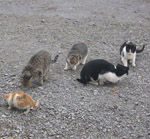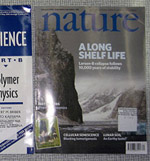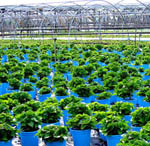Optimizing the habitat of rice fields in the wake of wetland loss
 Agriculture,
Agriculture,  Wetland
Wetland If you driven through the Central Valley of California - the state I call home - you've probably witnessed the scenic view of flooded rice fields with perhaps an egret or great blue heron standing stoically in the Rice field in South Korea.
middle. Rice production presents a good example of the deep ambiguity that can plague conservation issues. On the one hand, the conversion of 156 million hectares of land to rice has contributed, along with many other causes, to the global loss of half the world's natural wetlands. At the same time, the rice farming technique of maintaining flooded fields plays an important role in providing wetland species habitat in the absence of natural wetlands. So scientists have been giving particular attention to what exactly those habitat values are and how they can be optimized.
A new study looks at the value of rice fields in providing habitat for macroinvertebrates - crustaceans, insects, molluscs, annelids, etc - in Southern Brazil. The researchers were interested in determining Researchers found arthropods such as Hyallela in the rice fields. Image credit, Scott Bauerwhether one type of management versus another could improve the value of the habitat. They conducted sampling of rice fields under two different management regimes - fields that were left flooded after harvesting and fields that were left dry. The study surprisingly found that the species richness (i.e. the total number species) and the species density were the same for both systems. However they found that the species composition differed substantially. In the fields that were maintained flooded after harvest, aquatic species dominated. While in fields that were left dry after harvest terrestrial-adapted macroinvertebrates were most common.
The researchers recommend that farmers maintaintheir fallow rice fields partially flooded and partially dry after harvest to improve biodiversity. While they acknowledge the importance of rice fields in providing habitat they warn us not to think of these agricultural lands as substitutes for wetlands:
“The rice fields must not be viewed as surrogate systems for natural wetlands, given that the more complex natural wetland systems play an important part in aquifer recharging, climatic stability, water storage, among others. Furthermore, the macroinvertebrate richness in rice fields is lower than in southern Brazil wetlands, and the macroinvertebrate composition was different from that on natural wetlands mainly due to the high dominance of oligochaetes (worm-like species).”
--Reviewed by Rob Goldstein
| Source: | Hydrobiologia |
| Title: | Can hyrdologic management practices of rice fields contribute to macroinvertebrate conservation in southern Brazil wetlands? |
| Authors: | a, Cristina Stenert, a) Roberta Bacca and b) Odete Rocha |
|
a) Universidade do Vale do Rio dos Sinos, Brazil |




Reader Comments